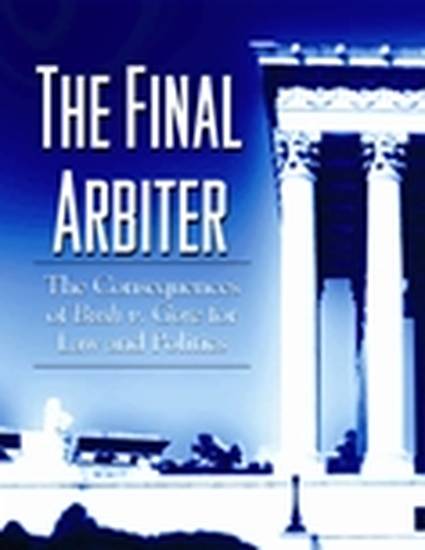
Contribution to Book
Bush v. Gore and the Distortion of Common Law Remedies
The Final Arbiter:The Consequences of Bush v. Gore for Law and Politics
(2005)
Abstract
The book The Final Arbiter addresses the legal and political consequences of the Bush v. Gore decision. This article presented as Chapter 4 addresses the lasting impact of Bush v. Gore on the law of remedies. While others have focused on what the Court should or could have done in the case, this article focuses on what the Court actually did by analyzing the text of the decision and the remedial platform that formed the Court's consensus. The Court in Bush adopted a new model of prophylactic relief that provided too much, not too little relief. Yet this prophylactic remedy was disconnected from prior legal principles guiding the judicial use of this unique remedial power. The result of this novel use of a prophylactic remedy is the creation of a future model of expansive relief for constitutional violations. However the case also provides a model of federal court use of a remedy to nullify state rights.
Keywords
- Election,
- remedies
Disciplines
- Law and
- Political Science
Publication Date
June, 2005
Editor
Christopher P. Banks, David B. Cohen, John C. Green
Publisher
SUNY Press
ISBN
0-7914-6535-7
Citation Information
Tracy A. Thomas, Bush v. Gore and the Distortion of Common Law Remedies, Chp. 3 in The Final Arbiter: The Consequences of Bush v. Gore for Law and Politics (Eds. Christopher P. Banks, David B. Cohen, and John C. Green SUNY Press 2005).
